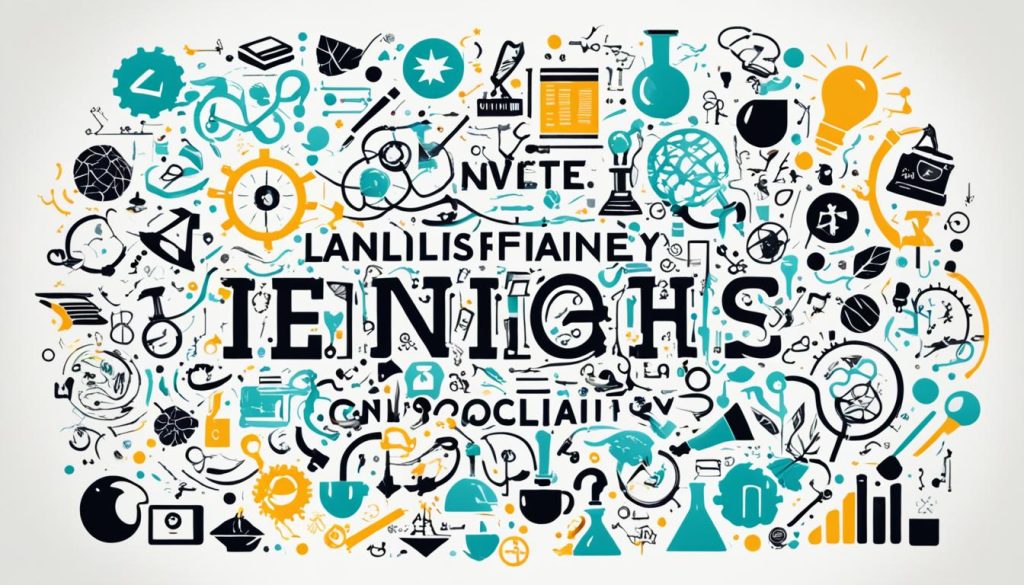Intellectual Horizons Expand your mind with interdisciplinary exchange opportunities
Welcome to an exciting world of intellectual exploration and multidisciplinary learning! Interdisciplinary exchange opportunities provide a unique platform for students to broaden their horizons and delve into the fascinating realm of cross-disciplinary studies. This high-end academic exchange experience is designed to ignite your curiosity, challenge your assumptions, and cultivate versatile skills applicable in a wide range of professional settings.
At Deluxe Interdisciplinary Learning, we believe that knowledge knows no boundaries. By blending different disciplines, our exclusive interdisciplinary studies foster a comprehensive understanding of complex topics, empowering students to tackle real-world challenges with innovation and creativity. These premium cross-disciplinary initiatives not only stimulate intellectual growth but also pave the way for personal fulfillment and lifelong learning.
Key Takeaways:
- Interdisciplinary exchange opportunities provide a platform to broaden intellectual horizons.
- Multidisciplinary learning experiences enhance critical thinking and problem-solving skills.
- Cross-disciplinary exchange programs offer high-end academic opportunities.
- Exclusive interdisciplinary studies foster a comprehensive understanding of complex topics.
- Deluxe interdisciplinary learning unlocks endless possibilities for personal growth.
What are Interdisciplinary Studies?
Interdisciplinary studies refer to an academic program that integrates multiple fields of study or disciplines. This approach allows students to tailor their education by combining courses from different departments, fostering a more holistic understanding of complex topics. By breaking down the traditional boundaries between disciplines, interdisciplinary studies provide students with a versatile toolkit of knowledge and skills.
One of the key advantages of interdisciplinary studies is the opportunity to explore multiple fields of study. Students can delve into various subjects and gain insights from different perspectives, leading to a well-rounded education. This multidisciplinary approach not only enhances critical thinking and problem-solving abilities but also promotes creativity and the ability to synthesize information from multiple sources.
By integrating the knowledge and methods from different disciplines, interdisciplinary studies equip students with a holistic understanding of complex phenomena. This comprehensive view enables students to tackle real-world challenges with greater depth and nuance, preparing them for a wide range of careers that require versatile skills.
Interdisciplinary studies foster collaboration and encourage students to work across disciplines to find innovative solutions. By bringing together experts from different fields, students are exposed to diverse ways of thinking and gain valuable insights into how multiple disciplines can intersect to address complex problems.
“Interdisciplinary studies help us understand how knowledge is interconnected and how different fields can contribute to a deeper understanding of the world around us,” says Dr. Jessica Thompson, a professor of interdisciplinary studies at XYZ University.
“This approach not only promotes critical thinking but also prepares students for the challenges of the modern world, where complex problems often require a multidisciplinary approach.”
To further illustrate the benefits of interdisciplinary studies, consider the following table:
| Benefits of Interdisciplinary Studies | Description |
|---|---|
| Versatile Skills | Interdisciplinary studies provide students with a diverse skill set that is applicable in various professional settings. This versatility makes them agile and adaptable in today’s rapidly changing job market. |
| Critical Thinking | By exploring multiple disciplines, students develop critical thinking skills that enable them to analyze complex problems from different perspectives and make informed decisions. |
| Problem-solving | Interdisciplinary studies foster problem-solving by encouraging students to apply knowledge from multiple disciplines to find innovative solutions. |
| Holistic Understanding | By integrating knowledge from different fields, interdisciplinary studies provide students with a comprehensive understanding of complex topics, enabling them to make connections between seemingly unrelated concepts. |
| Collaboration | Interdisciplinary studies emphasize collaborative work, preparing students to work effectively in multidisciplinary teams and leverage the diverse expertise of team members. |
The Biggest Benefits of Interdisciplinary Studies
Interdisciplinary studies offer a wealth of benefits to students, providing them with a well-rounded education that prepares them for diverse careers and cultivates personal growth. The holistic understanding gained through interdisciplinary studies enables students to grasp complex topics from multiple angles, fostering critical thinking and problem-solving skills. By integrating knowledge from various disciplines, students become adept at finding innovative solutions and applying their learning to real-world situations.
Effective communication is a crucial skill developed through interdisciplinary studies as students learn to express ideas across different fields and collaborate with individuals from diverse backgrounds. This enhances their adaptability and creativity, equipping them with the ability to thrive in a rapidly changing global landscape.
Interdisciplinary studies also foster a global perspective, encouraging students to consider a wide range of cultural, social, and environmental factors when approaching problems. Collaboration becomes second nature as students work alongside peers with different expertise, fueling personal growth and expanding their intellectual horizons. Through collaboration and exposure to diverse perspectives, students develop empathy and a deep appreciation for the value of inclusivity.
| Benefits of Interdisciplinary Studies |
|---|
| Holistic understanding of complex topics |
| Critical thinking and problem-solving skills |
| Innovation and creative thinking |
| Real-world application of knowledge |
| Effective communication across disciplines |
| Adaptability in rapidly changing environments |
| Global perspective and cultural awareness |
| Collaboration and teamwork |
| Personal growth and development |
Overall, interdisciplinary studies unlock a world of opportunities for students, nurturing their intellectual, personal, and professional growth. By embracing this approach, students gain a unique edge in the job market, armed with a versatile skill set and a broader understanding of the world.
Multidisciplinary Learning: A Gateway to Expanding Perspectives
Multidisciplinary learning is a transformative educational approach that goes beyond the confines of single disciplines. It involves integrating knowledge and methods from different fields to gain a broader understanding of complex issues. This unique approach to learning fosters critical thinking, adaptability, and the ability to consider diverse perspectives when solving problems. By breaking down the traditional boundaries between subjects, multidisciplinary learning expands students’ intellectual horizons and equips them with valuable skills for the modern world.
When students engage in multidisciplinary learning, they have the opportunity to see the interconnectedness of knowledge across various disciplines. This enables them to explore problems from multiple angles and develop a more comprehensive understanding. By integrating diverse perspectives, students become more effective problem-solvers, capable of generating innovative solutions to complex challenges.
Moreover, multidisciplinary learning cultivates critical thinking skills by encouraging students to question assumptions, analyze information from different sources, and evaluate evidence from various perspectives. This analytical mindset empowers students to approach problems with a fresh and open mindset, leading to more effective problem-solving and decision-making.
One of the key benefits of multidisciplinary learning is its emphasis on adaptability. In a rapidly changing world, where new technologies, industries, and challenges arise, adaptability is crucial. Multidisciplinary learning equips students with the flexibility to navigate unfamiliar contexts, integrate new information quickly, and apply their skills in different environments. This adaptability prepares them to thrive in diverse career paths and tackle complex problems that require multidimensional thinking.
Furthermore, multidisciplinary learning enhances students’ understanding of diverse perspectives and cultures. By engaging with different disciplines, students are exposed to a range of viewpoints and approaches, fostering empathy and appreciation for diversity. This broadening of perspectives nurtures inclusivity and prepares students to become global citizens who can contribute positively to an interconnected world.
Overall, multidisciplinary learning opens doors to new possibilities and expands students’ intellectual boundaries. It empowers learners to think critically, solve problems creatively, and embrace diversity. Through multidisciplinary learning, students develop the skills and knowledge needed to thrive in the complex and rapidly evolving world we live in.
So, let’s embrace the power of multidisciplinary learning and unlock the potential for expanding perspectives, critical thinking, adaptability, diverse insights, and effective problem-solving.
Embracing Interdisciplinary Approaches
When it comes to solving complex problems and gaining a comprehensive understanding, embracing interdisciplinary approaches is key. By incorporating knowledge and perspectives from multiple disciplines, individuals can approach issues from different angles, leading to innovative solutions and more sustainable urban development.
In the context of sustainable urban development, integrating insights from fields such as environmental science, urban planning, sociology, and economics can offer a well-rounded perspective. This multidisciplinary approach enables a holistic understanding of the various factors at play, ultimately leading to more inclusive and environmentally friendly outcomes.
By connecting seemingly unrelated concepts and encouraging collaborative thinking, interdisciplinary approaches foster innovative solutions. These approaches facilitate the exploration of alternative ideas and the generation of unique perspectives. As a result, individuals are equipped with the tools needed to tackle complex challenges effectively.
Implementing interdisciplinary approaches requires breaking down the boundaries between disciplines, allowing for the free flow of knowledge and ideas. This fosters an environment of collaboration, where experts from different fields can share their expertise and work together towards shared goals.
The integration of diverse knowledge and perspectives allows for a more comprehensive understanding of complex issues and paves the way for innovative solutions.”—Dr. Jane Thompson, Sustainability Expert
Embracing interdisciplinary approaches is crucial for addressing the complex and interconnected problems faced by society. By drawing on insights from various fields, individuals can develop comprehensive and sustainable solutions that meet the needs of both present and future generations.
| Benefits of Embracing Interdisciplinary Approaches |
|---|
| 1. Multidimensional problem-solving |
| 2. Innovative solutions |
| 3. Comprehensive understanding |
| 4. Inclusive and sustainable outcomes |
| 5. Collaboration and collective intelligence |
Fostering Creativity and Innovation
Multidisciplinary learning is a catalyst for creativity and innovation, offering individuals the opportunity to explore diverse ways of thinking and problem-solving approaches. By delving into different disciplines, multidisciplinary learners unlock the potential for cross-pollination of ideas, leading to breakthrough innovations that can revolutionize industries and address complex real-world problems.
One notable example of the power of multidisciplinary learning is seen in the field of biomimicry. By drawing inspiration from nature and combining ideas from biology, engineering, and design, researchers and innovators have been able to create innovative solutions that mimic nature’s brilliance. From the development of self-cleaning surfaces inspired by lotus leaves to the creation of efficient wind turbines inspired by humpback whale fins, biomimicry demonstrates how the fusion of diverse disciplines can spark groundbreaking innovation.
Through multidisciplinary learning, individuals are exposed to varied perspectives and approaches, expanding their mental frameworks and broadening their imaginative faculties. The blend of different disciplines enables individuals to connect seemingly unrelated concepts, encouraging them to question assumptions and think outside the box.
“The true sign of intelligence is not knowledge but imagination.”
– Albert Einstein
By embracing diverse ways of thinking, multidisciplinary learners are equipped with the tools to approach complex challenges with fresh insights. This ability to think creatively and innovatively becomes invaluable in a world that demands constant adaptation and the development of novel solutions.
Benefits of Multidisciplinary Learning for Creativity and Innovation
- Promotes the synthesis of ideas from different disciplines
- Encourages the exploration of unconventional approaches
- Fosters the integration of diverse perspectives
- Sparks creativity by connecting seemingly unrelated concepts
- Stimulates breakthrough innovations
Incorporating multidisciplinary learning into educational systems, professional environments, and innovation-driven sectors has the potential to create a paradigm shift in problem-solving and idea generation. By nurturing creativity and innovation through the fusion of disciplines, societies can advance and embrace new possibilities that drive positive change.
| Benefits of Multidisciplinary Learning | Examples of Applications |
|---|---|
| Enhanced creativity | Design thinking, innovative product development |
| Broader problem-solving perspectives | Entrepreneurship, sustainable technology solutions |
| Collaborative mindset | Team-based projects, interdisciplinary research |
| Adaptability to change | Digital transformation, disruptive industries |
Enhancing Critical Thinking and Analytical Skills
Multidisciplinary learning plays a crucial role in cultivating critical thinking and analytical skills. By engaging with different disciplines, individuals are encouraged to evaluate evidence, identify biases, and weigh different perspectives. This ability to think critically and analyze information is invaluable in today’s information-rich society, enabling individuals to make informed decisions and understand different viewpoints.
Developing Critical Thinking
Critical thinking is a fundamental skill that allows individuals to approach problems and situations with an analytical mindset. Through multidisciplinary learning, students are exposed to diverse ideas, theories, and methodologies, which prompts them to question assumptions and challenge established beliefs. By critically engaging with different disciplines, individuals develop the capacity to evaluate the credibility and reliability of information, enhancing their ability to make well-informed judgments.
Analyzing Evidence and Identifying Biases
Another key aspect of multidisciplinary learning is the opportunity it provides to evaluate evidence from various sources. Encountering different perspectives and interpretations allows individuals to critically analyze information, consider alternative viewpoints, and identify potential biases or limitations. This skill is especially valuable in navigating a world where information can be easily manipulated or distorted. By honing their analytical skills through multidisciplinary learning, individuals become adept at recognizing biased or inadequate evidence, equipping them to make more accurate assessments and decisions.
Enhancing critical thinking and analytical skills through multidisciplinary learning empowers individuals to evaluate evidence, weigh different perspectives, and make informed decisions in an information-rich society.
Furthermore, multidisciplinary learning promotes the development of an analytical mindset that allows individuals to approach complex problems with systematic reasoning. By integrating knowledge and insights from various disciplines, individuals gain a broader toolkit for problem-solving, enabling them to break down complex issues and formulate effective strategies.
Example: Analyzing Data in a Multidisciplinary Context
Consider the example of a group project in a multidisciplinary learning setting, where students from diverse fields collaborate to analyze a dataset related to climate change. Each student brings their unique set of skills and knowledge to the table: a biologist contributes insights into the impact of temperature on ecosystems, an economist analyzes the financial implications of climate policies, and a sociologist examines the social attitudes towards sustainable practices.
By analyzing the dataset from a multidisciplinary perspective, students are exposed to different analytical frameworks, methodologies, and approaches. They learn to critically evaluate the data, considering various factors and perspectives that influence climate change. This exercise expands their analytical skills, fostering a deeper understanding of the complex issue and the potential for innovative solutions.
| Benefits of Enhancing Critical Thinking and Analytical Skills through Multidisciplinary Learning |
|---|
| 1. Ability to evaluate evidence and make informed decisions. |
| 2. Capacity to identify biases and question assumptions. |
| 3. Skill in analyzing complex problems and formulating effective strategies. |
| 4. Confidence in recognizing and navigating information-rich environments. |
| 5. Competence in understanding and integrating insights from different disciplines. |
Through multidisciplinary learning, individuals gain the critical thinking and analytical skills necessary to navigate the complexities of the modern world. These skills enable them to evaluate evidence, identify biases, and make informed decisions. Ultimately, a multidisciplinary approach enhances their capacity to think critically, ensuring they remain adaptable and effective problem-solvers in a rapidly evolving global landscape.

Nurturing Personal Growth and Adaptability
Multidisciplinary learning is a catalyst for personal growth and adaptability, paving the way for the development of a versatile intellectual toolkit. By exploring various disciplines, individuals gain the skills and knowledge necessary to thrive in a rapidly changing world. This multifaceted approach to learning equips individuals with the adaptability and resilience needed to navigate diverse challenges and seize new opportunities.
Through multidisciplinary learning, individuals are encouraged to step outside their comfort zones and acquire new skills. This broadens their horizons and prepares them for a wide range of career paths. Whether it’s blending computer science with design, or combining psychology with marketing, multidisciplinary learning empowers individuals to approach challenges with a versatile toolkit of knowledge and skills.
“Multidisciplinary learning opens doors to endless possibilities. It nurtures personal growth by fostering adaptability and instilling a sense of curiosity.”
– Dr. Maya Patel, Professor of Multidisciplinary Studies
One of the key benefits of multidisciplinary learning is its ability to cultivate adaptability. In an ever-changing society, being adaptable is crucial for success. Multidisciplinary learning equips individuals with the ability to view situations from multiple perspectives, to think critically, and to adapt their approaches in response to new challenges. This flexibility allows individuals to embrace change, continuously learn, and navigate through complex scenarios with confidence.
Expanding Perspectives through Multidisciplinary Learning
When individuals engage in multidisciplinary learning, they expose themselves to diverse perspectives, ideas, and ways of thinking. This exposure broadens their horizons, fostering personal growth and expanding their understanding of the world. By embracing different disciplines, individuals gain insights into the connections and intersections between fields, paving the way for innovative thinking and problem-solving.
For example, let’s consider the field of sustainable architecture. By combining knowledge from environmental science, architecture, and social sciences, individuals can develop creative and sustainable solutions for urban development. Through multidisciplinary learning, they gain a deeper understanding of the complex factors that contribute to sustainable urban living, such as energy efficiency, community engagement, and cultural preservation.
Building a Versatile Toolkit for Personal Fulfillment
Multidisciplinary learning offers individuals the tools they need to pursue personal fulfillment and lifelong learning. By acquiring knowledge from diverse disciplines, individuals develop a versatile toolkit that enables them to adapt to changing circumstances and explore new paths. This flexibility opens up opportunities for personal growth, career advancement, and a deeper understanding of the world.
| Benefits of Multidisciplinary Learning |
|---|
| 1. Enhances adaptability and resilience |
| 2. Fosters creativity and innovation |
| 3. Expands career opportunities |
| 4. Promotes lifelong learning |
| 5. Encourages a holistic understanding of complex issues |
By nurturing personal growth and adaptability, multidisciplinary learning empowers individuals to embrace change, think innovatively, and pursue their unique passions. With a versatile intellectual toolkit in hand, they are well-equipped to navigate the complexities of the modern world and make a meaningful impact.
Broadening Horizons through Multidisciplinary Learning
Multidisciplinary learning is a transformative approach that opens doors to diverse cultures, perspectives, and ways of thinking. By embracing this educational method, individuals unlock opportunities to broaden their horizons and develop a global perspective. Multidisciplinary learning fosters cultural awareness, inclusivity, and empathy, allowing students to challenge their own biases and gain a deeper understanding of the world we live in.
Through multidisciplinary learning, students are exposed to a wide range of disciplines and subjects, which helps break down stereotypes and fosters understanding among diverse communities. This approach encourages individuals to value and appreciate the richness of different cultures, ultimately promoting harmony and unity on a global scale.
One of the key benefits of multidisciplinary learning is its ability to cultivate empathy. By gaining insights into different perspectives and experiences, students develop a greater sense of empathy and understanding towards others. This enhanced empathy not only strengthens interpersonal relationships but also equips individuals with the skills necessary to navigate an increasingly interconnected and diverse world.

Multidisciplinary learning also plays a pivotal role in fostering inclusivity. By incorporating multiple disciplines and perspectives, it creates an environment where diverse voices are heard and valued. This inclusive approach empowers individuals to collaborate effectively and find innovative solutions to complex challenges, embracing the diversity within their own communities and beyond.
“Multidisciplinary learning allows us to bridge gaps, transcend boundaries, and cultivate a deep appreciation for the richness of global cultures and perspectives.” – Dr. Maya Johnson, Professor of International Relations
By broadening horizons through multidisciplinary learning, individuals not only gain a comprehensive understanding of the world but also develop a sense of responsibility towards it. They become advocates for positive change, equipped with the knowledge and skills to address complex global issues with creativity and innovation.
Table: Benefits of Multidisciplinary Learning
| Benefits | Description |
|---|---|
| 1. Cultural Awareness | Exposure to diverse cultures and perspectives |
| 2. Global Perspective | Understanding of global issues and interconnectedness |
| 3. Inclusivity | Embracing diverse voices and fostering collaboration |
| 4. Empathy | Developing understanding and compassion towards others |
While multidisciplinary learning offers numerous benefits, it requires a nurturing and inclusive educational environment. Institutions and educators play a crucial role in providing opportunities for multidisciplinary learning and fostering a culture that values diverse perspectives.
As societies become increasingly interconnected and diverse, the importance of multidisciplinary learning in broadening horizons cannot be overstated. It equips individuals with the tools they need to navigate a complex world, fostering cultural awareness, global perspective, inclusivity, and empathy. Through multidisciplinary learning, we not only become better learners but also better citizens of the world.
The Role of Mentors in Broadening Horizons
Mentors play a significant role in broadening horizons, offering valuable guidance and support to individuals on their personal and professional journeys. Through their mentorship, they challenge assumptions, introduce different approaches and strategies, and encourage continuous learning.
One of the key ways mentors broaden horizons is by exposing individuals to diverse experiences. By sharing their own experiences and perspectives, mentors expose mentees to different cultures, industries, and ways of thinking. This exposure helps mentees develop a broader worldview and a deeper understanding of the world around them.
Mentors also play a crucial role in challenging assumptions. They encourage mentees to question their preconceived notions and biases, fostering intellectual curiosity and critical thinking. By challenging assumptions, mentors help mentees explore new ideas and perspectives, unlocking innovative solutions and paving the way for personal and professional growth.
“A good mentor helps you see outside your own narrow frame of reference and provides a fresh perspective. They challenge your assumptions and encourage you to explore different approaches and possibilities.” – Sarah Johnson, successful entrepreneur and mentee
Another benefit of mentorship is the introduction of different approaches and strategies. Mentors bring a wealth of knowledge and experience from their own diverse backgrounds, industries, and areas of expertise. By sharing their insights, mentors provide mentees with a broader toolkit that encompasses various approaches to problem-solving and decision-making.
Continuous learning is also a key aspect of mentorship. Mentors inspire mentees to embrace lifelong learning, encouraging them to seek new knowledge and skills. They often recommend books, articles, courses, or conferences that can broaden mentees’ horizons and deepen their understanding of different subjects. Through their support, mentors instill a love for continuous learning and personal development.
Table: The Impact of Mentors on Broadening Horizons
| Mentors | Benefits |
|---|---|
| Challenge assumptions | Encourage critical thinking and exploration of new ideas |
| Exposure to diverse experiences | Development of a broader worldview and understanding |
| Introduction of different approaches | Expansion of problem-solving and decision-making skills |
| Encouragement of continuous learning | Promotion of lifelong learning and personal development |
Overall, mentors play a crucial role in broadening horizons by challenging assumptions, introducing different approaches, encouraging continuous learning, exposing individuals to diverse experiences, and opening doors to new opportunities. Through their mentorship, they provide invaluable support and guidance, helping mentees expand their perspectives and tap into new possibilities for personal and professional growth.
Conclusion
Interdisciplinary exchange opportunities provide students with a valuable platform to broaden their intellectual horizons and develop versatile skills. Through multidisciplinary learning experiences, students enhance their critical thinking, problem-solving, communication, innovation, and personal growth abilities. The cross-disciplinary exchange programs offer high-end academic opportunities, allowing students to explore different fields and integrate knowledge from diverse disciplines.
Engaging in exclusive interdisciplinary studies fosters a comprehensive understanding of complex topics and equips students for diverse careers. By embracing these premium cross-disciplinary initiatives, students unlock endless possibilities for lifelong learning and personal fulfillment. The opportunity to participate in high-end academic exchange programs and delve into deluxe interdisciplinary learning enhances their educational journey, allowing for a truly enriching and transformative experience.
As students embrace interdisciplinary exchange opportunities, they open themselves up to new perspectives, learn to think critically from various angles, and develop a holistic understanding of interconnected disciplines. These experiences prepare them to tackle real-world challenges and make meaningful contributions to society. By engaging in premium cross-disciplinary initiatives, students embark on a transformative educational journey that equips them with the necessary skills to thrive in an ever-evolving world.




